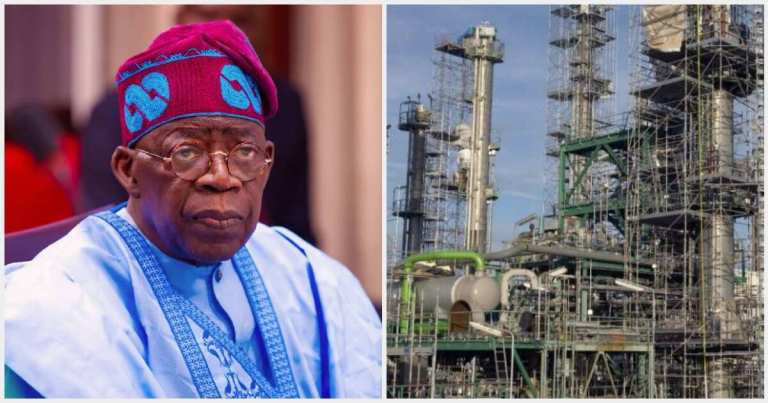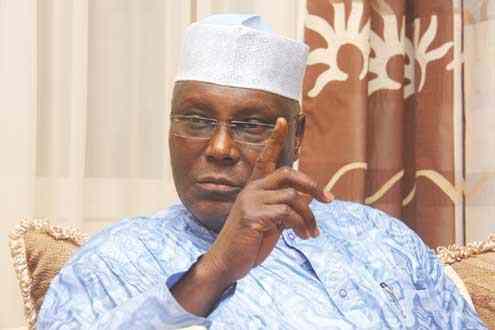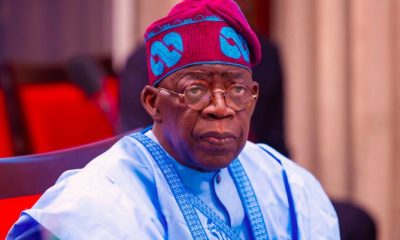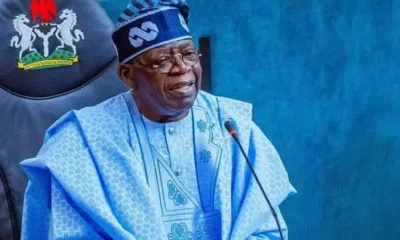News
Forex: Tinubu Orders NNPCL To Sell Crude To Dangote Refinery, Others In Naira

…Says Transactions Now To Be done In Local Currency
In order to relieve the pressure on foreign exchange and check the volatility in the price of petroleum products in the country, President Bola Tinubu has directed the Nigerian National Petroleum Company Limited (NNPCL) to sell crude oil to Dangote Refinery and other refineries in the country in Naira.
He also mandated that transactions in finished products between NNPCL and other marketers in the country be carried out in local currency.
This was disclosed by the Special Adviser to the President on Revenue, Zach Adedeji who briefed newsmen after the Federal Executive Council (FEC) chaired by President Bola Tinubu at the Presidential Villa yesterday.
Adedeji, also the Chairman of the Federal Inland Revenues Services (FIRS), who noted that transactions were being done in foreign exchange (Dollars) until the latest Presidential directive, explained that the Dangote Refinery required approximately 15 crude cargoes per month, translating to an annual supply cost of USD 13.5 billion while the NNPCL has committed to supplying four (4) crude oil cargoes monthly, leaving the remainder to be sourced from international traders.
According to him, feeding the Dangote Refinery required strategic intervention in order to stabilize the Naira exchange rates.
He said with the new directive, the
“Local refineries’ crude oil purchases from NNPCL be denominated in NGN at a fixed exchange rate for a minimum period of six months.
“Refined product sales to approved Local Petroleum Marketing Companies be conducted in NGN at the same fixed exchange rate.
“A settlement bank (e.g., Afreximbank) facilitates both trades by providing guarantees to NNPCL to cover the payment risk of local refineries and to Nigerian commercial banks for the payment risk of Petroleum Marketing Companies. This approach will eliminate the need for international letters of credit, saving Nigeria substantial amounts of USD.”
On the benefits of the new directive, he said there would be a “Reduction in foreign exchange pressure, as the previous scenario utilized USD 660 million per month, totalling USD 7.92 billion annually.
“With the proposed scenario, expenditures are projected to decrease to USD 50 million per month, equating to USD 600 million annually. This reduction will significantly alleviate the pressure on foreign exchange reserves, leading to annual savings of USD 7.32 billion representing 94%.
“Reduced trade finance costs with annual savings of USD 79 million in LC costs through Afreximbank’s payment undertakings for bilateral trades.
“Stabilized petroleum product prices as the forward-selling of crude oil and refined products at a fixed exchange rate unaffected by exchange rate fluctuations will stabilize pump prices.
“Stabilizing petroleum prices will likely drive the appreciation of the NGN, as petroleum imports account for 30% of Nigeria’s FX demand.
“Stable petroleum prices will lower transportation costs, reducing food price inflation and positively impacting interest rates and USD/NGN exchange rates.
“This strategy will eliminate government control and drive independence of the market as it aims to eliminate government intervention in the management of domestic petroleum prices, further facilitating competitiveness and allowing for greater market predictability and stability.
This model, subject to the settlement bank’s (e.g., Afreximbank) credit approvals, can be replicated for other refineries, facilitating the trade of 445,000 barrels reserved for domestic consumption and achieving energy security. This further ensures that strategic reserves are pegged at tolerable prices driving improved economic stability.”
-

 Opinion4 days ago
Opinion4 days agoDon’t Pull the Plug: Why Nigerians Are Pleading for the U.S. to Extend Its Police Training Program — and Why It Must Synergize With New Military Arrivals
-

 Crime4 days ago
Crime4 days agoVigilante Reportedly Shoots Colleague Dead In Plateau
-

 News3 days ago
News3 days agoRamadan: Osun Cleric Urges Compassion Among Muslims As Asejere Distributes Relief Materials To 537 Beneficiaries
-

 Crime5 days ago
Crime5 days agoMan Shot Dead In Ambush Along Jol-Sho Road In Plateau












